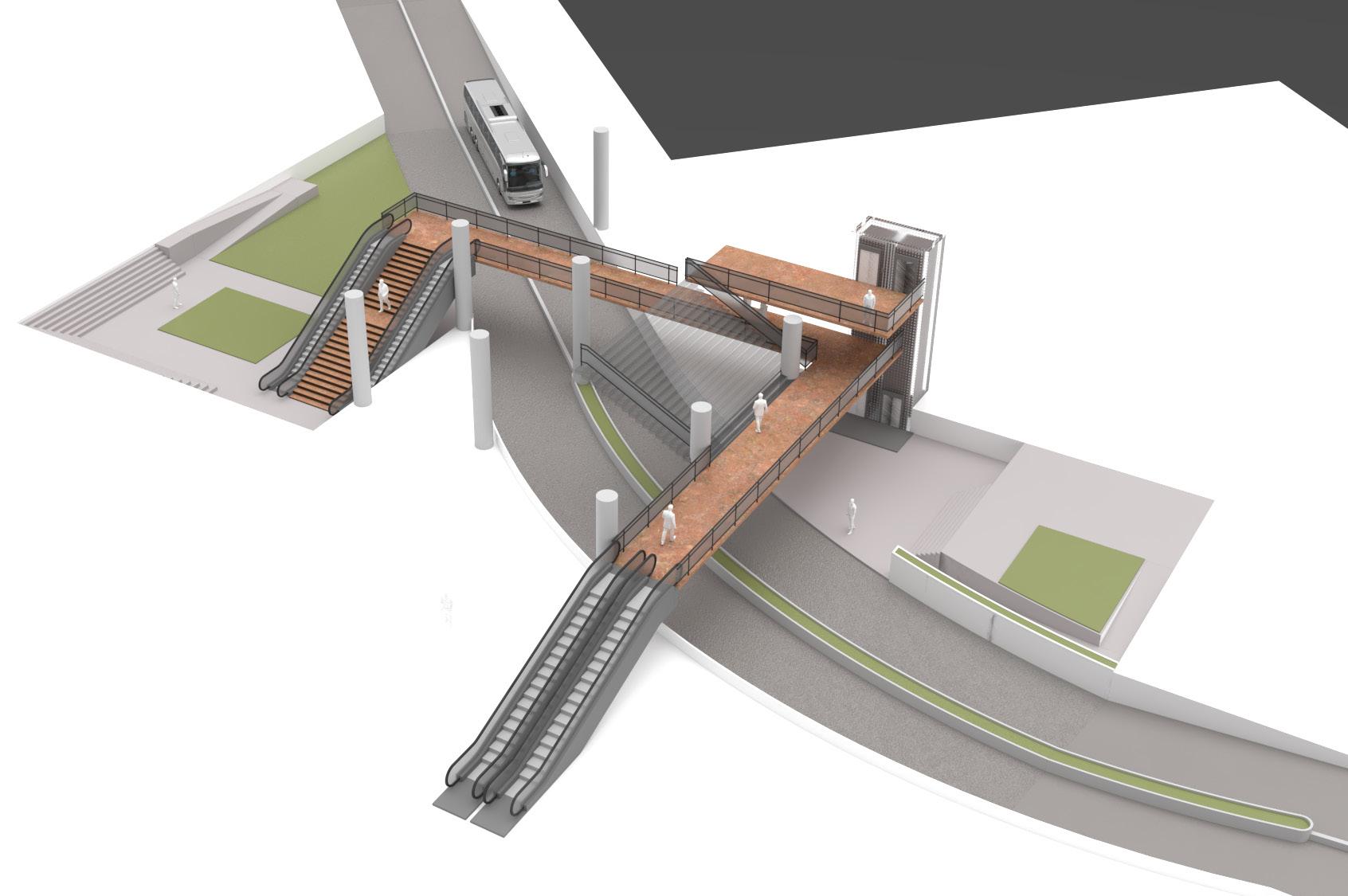

selected works



selected works

As an architecture graduate from Hosur, I have a strong interest in urban design with a focus on mixed-use typologies, urban mobility, and transit-oriented development. I am passionate about creating large-scale, integrated solutions that enhance urban living and connectivity. My academic background and projects reflect a commitment to developing sustainable and efficient urban environments.
Education
2019- 2024
Dec 2022- May 2023
Skills
Rhino Sketchup Grasshopper Revit
Autocad
Competition works
Solar Decathlon- Multihouse category
Placed Top 21, Nationally. Special MentionCFD Simulation & Design
Urban Node, Ethos
Glamping, Mango Architecture
Placed Top 10, Nationally
Charles Correa Memorial Competition
V-SPARC School of Architecture Vellore Institute of Technology, Vellore
Internship at PRAXIS INC, Bangalore
Photoshop Illustrator
Lumion
V-Ray Enscape
Certification
Roman Architecture, Coursera- Yale university
Greening the Economy: sustainable cities, Coursera- Lund university
Thesis
The Chennai Central Plaza
Dissertation
” Augmenting Urban Mobility and accessibility through LMC (last mile connectivity) for the Chennai metro”
Contact Interests
navinramachandran25@gmail.com
+91 9597450336
linkedin.com/in/navin-ramachandran-4b7477251
Spatial Planning Urban Design Landscape

The thesis aims to establish a transit-oriented mixed use high rise in the bustling Chennai Central stretch, a key junction of multiple transit systems.
An unique startup centre that merges diverse typologies, offering innovators an environment where living, working, and leisure seamlessly intersect.
Transforming Arcot Bus Stand into a vibrant urban node, solving ground-level challenges while enhancing public space and connectivity.
Internship at PRAXIS INC, Bangalore

Location : Chennai

The Central plaza is a proposal for a mixed- use high rise opposite to the Chennai central right above the metro. This building caters to the needs for daily commuters by providing retail shops, accomodations and office spaces. The goal is to acheive proper development and densifying the transit corridors thus reducing the overall commutation of people. This also encourages users to use more public transport and helps in reducing last-mile connectivity problems.
One of the primary challenges of the project is the site itself. With the Buckingham Canal to the east and the metro and subway running beneath, the available built-up area is significantly constrained. Additionally, the site is sandwiched between multiple railway lines, limiting access to a single side and complicating the segregation of user groups.


Site constraints and setback

Core placement and regulating access

Division of private and public access

Designing a stepped public space towards park station also acting as the entrance to the building

Commercial space protruding out to create proper frontage

Subracting the overall mass to create OTS for the commercial block

Subraction of overall mass to create public zones

Maximizing views for hotel through a circumscribing plan

Overall vertical zoning











A single core has been designed to accommodate all typologies, featuring a total of 19 lift shafts. The core has been optimized to minimize area while efficiently incorporating AHU units, fire emergency staircases, plumbing ducts and various services



The plaza facing the park station serves as a buffer zone for people waiting during transit interchanges and functions as a secondary entrance to the commercial block. Beneath the stepped plaza, amenities such as a bank, fast food outlet, kiosks, and a pharmacy have been incorporated to cater to the needs of the fast-paced crowd.
First Floor- Plaza, Super market, Anchor shops
Third Floor- Food court, Anchor shops

Refuge Area(25 th flr)
Refuge Area(18 th flr)
Refuge Area(11 th flr)
First refuge Area at 24m

The design folllows the NBC where, a refuge area should be provided on every seventh floor of a high-rise building and the first refuge area should be after the first 24 meters of height.







Location : Vellore





The incubation centre is designed around the principles of live, work, and leisure, creating the best environment for innovation and collaboration. The work lab and private offices form the core workspace, while the community mall with open-air kiosks, shops, landscaped pathways, and an open-air theatre serves as the leisure hub. Topping the community centre, co-living apartments provide convenient housing, enabling residents to stay, innovate, and share ideas effortlessly.
BRT Proposal
This proposal introduces a BRT system connecting key nodes and transit points within the city. The BRT spans 3.4 km, linking Vellore Cantonment to the new bus stand, with potential for future extension to the Katpadi bus stand. The site, located near the cantonment, has been chosen to integrate the BRT, creating a potential major transit node for the development of the incubation center.





6 Working of pedestrian circulation above BRT
Integration the BRT into the site will include the development of two sunken bus stops, forming a dedicated transit node.

Providing an overpass for the BRT, linking the two bus stops while also serving as the entrance to the incubation center located above.

A form that envelops the two bus stops, maintaining uninterrupted public movement below through the use of large parabolic columns.

The community center is designed with co-living spaces above it, oriented to face the incubation center.
Incubation center Rental Office Commercial Co live





The design features a central nave left open to serve as an interactive and gathering space, while the side naves are stacked with containers. These containers, facing the central nave, can be utilized by various companies for advertising and attracting visitors. The arrangement of containers also forms niches, providing privacy and functioning as open shared workspaces furnished with modular, connected tables.




Location : Arcot

Located at the heart of Arcot near a major junction, the bus stand is a pivotal transportation hub surrounded by key commercial areas. Despite its importance, it suffers from poor circulation, congestion, and a lack of basic amenities like parking, toilets, and pedestrian infrastructure. The proposed design introduces a double bay system, with local buses to the west and long-distance buses to the east, ensuring smoother flow and better wayfinding. This upgrade enhances functionality, passenger experience, and accommodates future growth.



The site is next to the junction of Arcot’s two main roads making it highly accessible for both vehicles and pedestrians.

The existing bus stand lacks a defined facade and regulated public access, with pedestrian flow occurring from all directions.

The unregulated movement of vehicular traffic and pedestrians has resulted in the site being surrounded by multiple conflict zones.

The corner adjacent to the junction is transformed into an attractive landscape, serving as a buffer between the busy junction and the bus stand.


d.
A raised pavement connects the two bays, ensuring safe pedestrian movement while separating foot traffic from vehicles.

Disorganized public flow has been addressed by centralizing the entrance to a single point on the east side.
Designated bays aligned with bus routes are proposed to streamline bus flow and minimize conflicts.

The bus stand is poorly organized, with unrestricted access for all types of vehicles, creating an inconvenient and chaotic environment for public use.


The first floor serves as a leisure deck with fast food outlets, kiosks, and ample space to gather and sit. At night, it becomes a vibrant public space, making it more than just a bus stand.
The diagram depicts the bus stand’s dynamic use throughout the day. The ground floor is designed for efficient transit operations, while the first floor offers leisure areas and activities. By night, the deck transforms into a lively public space, and during peak times, it serves as a waiting area. The open, inviting design encourages high foot traffic, positioning the site as a central hub in the town.
The entrance, combined the raised pavement, as the primary circulation efficiently directing flow between the two

combined with pavement, serves circulation area, pedestrian two bays.
integrated into the walls, functions facade while inviting access the leisure the first floor.

The small plaza between the bus stand and the busy junction functions as both a buffer and a relief space, linking to the zebra crossing to facilitate smooth public movement.





Garment House Indore Office, G+4
My part- Planning, complete set of GFC drawings, renders
Pravachan
